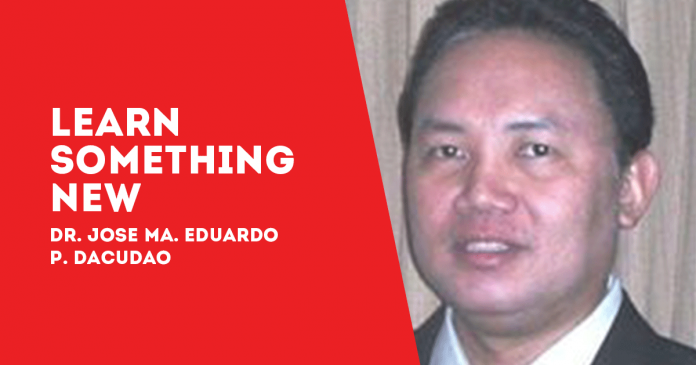
BY DR. JOSE MA. EDUARDO PALU-AY DACUDAO
LANGUAGE is the main medium by which humans communicate ideas and feelings to each other.
Consequently, language is not only the main transmitter of human culture, it also forms the most important part of culture. Without language, human society and culture would not exist at all.
Language also has another role that is often overlooked. Each language is shared by a cultural community, and forms the main basis for the existence of such a community, which is called an ethnolinguistic people.
If the language of an ethnolinguistic people dies, so does the people it defines. For example, if no one can speak Ilocano, Ilocanos would cease to exist, given that Ilocanos are ethnically defined and identified with this language.
It follows from the above that languages partition the world’s human population into distinct sets of ethnolinguistic peoples. Consequently, the world becomes more diversified, which lessens the chances for catastrophes to happen.
Each set naturally differs from each other in terms of culture, attitudes, behavior, customs, ethics, habits, morals, norms, mores, principles, scruples, standards, traditions, values, economy, politics, science and technology; and like the populations of plants and animals in the natural world even in specific biological attributes such as susceptibility to certain diseases.
For instance, it is well known that a monoculture of a plant crop in a given area is more prone to epidemics of diseases and pests compared to a similar area with high biodiversity.
Another analogy might help clarify the above idea. Say you have a large lake in freezing weather. Ice happens to form at the west end. The crystallization of liquid water would spread quite rapidly until the entire lake is frozen solid in short order.
Let us take this example as a catastrophe, and indeed such a rapid phase shift in a system is usually catastrophic to the organisms caught in it.
On the other hand, imagine that there is barrier between two halves of the lake, say a small strip of upraised land or spit. In this case, if the west side of the lake freezes quickly, the east side could be spared and remain liquid for a longer time, as the crystallization process is stopped from spreading into the east by the spit.
If there are living organisms in the east, perhaps even a tribe of humans, they would gain more time to adapt to a future freeze-out. They could well avoid a bigger catastrophe. In brief, the more rigidly centralized is a system, the more prone it is to catastrophes; on the other hand, the more partitions there are in a system, the more adaptable the whole system is to changes, thereby lessening the chance for catastrophes to occur.
In addition, even if there were no freeze-out catastrophe at all, the two divisions of the lake would naturally evolve distinct ecological communities, contributing to the over-all biodiversity of the area.
Children are born with the ability to learn any language, but they usually learn as their native tongue their parents’ first language — a language that has been passed down from generation to generation for hundreds of years. (To be continued)/PN



